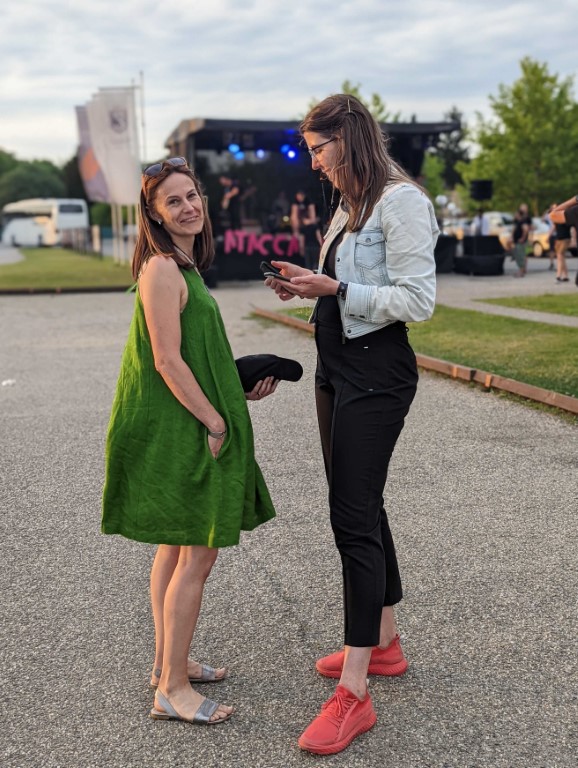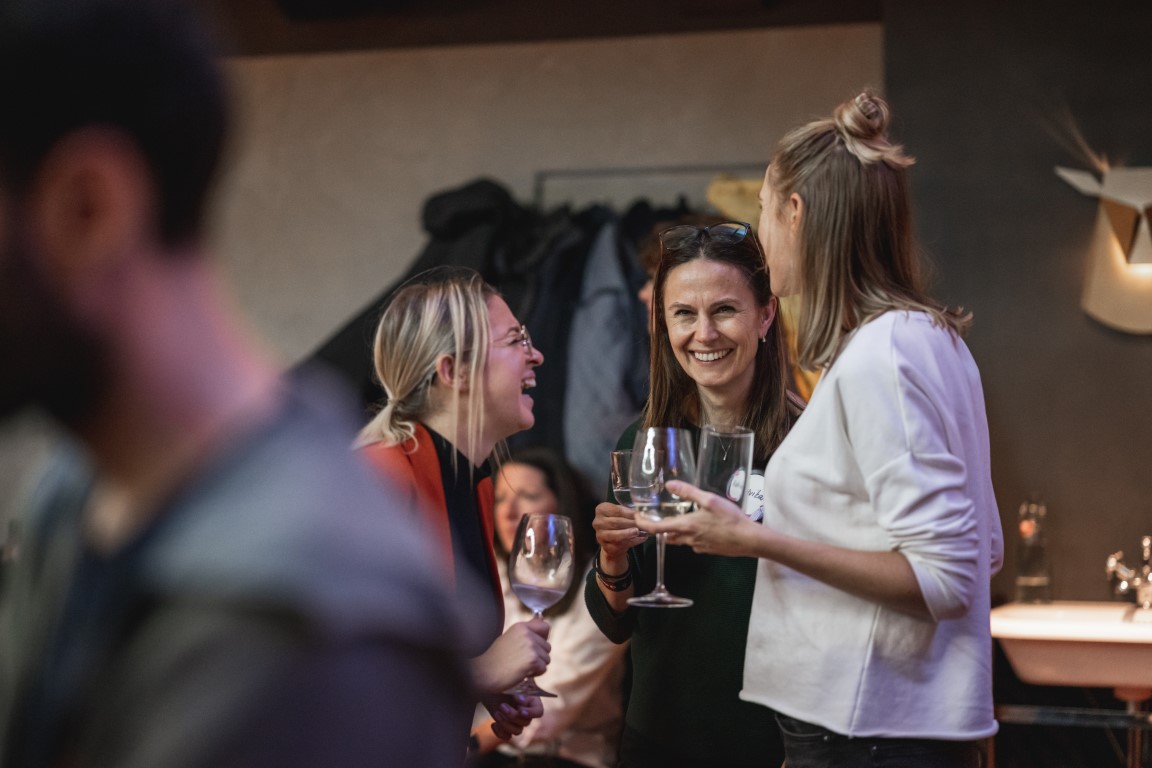So you’re told you have an event coming up–what are your first steps to start planning?
Baru: First you learn who the audience is, and based on that you start with the communication, invitation, these things. And of course, the budget. Then the venue, definitely, the date, then you move on to smaller steps...But you can write down a list, and then you won't miss anything. It doesn't matter if it's a conference for 50 or 500 people.
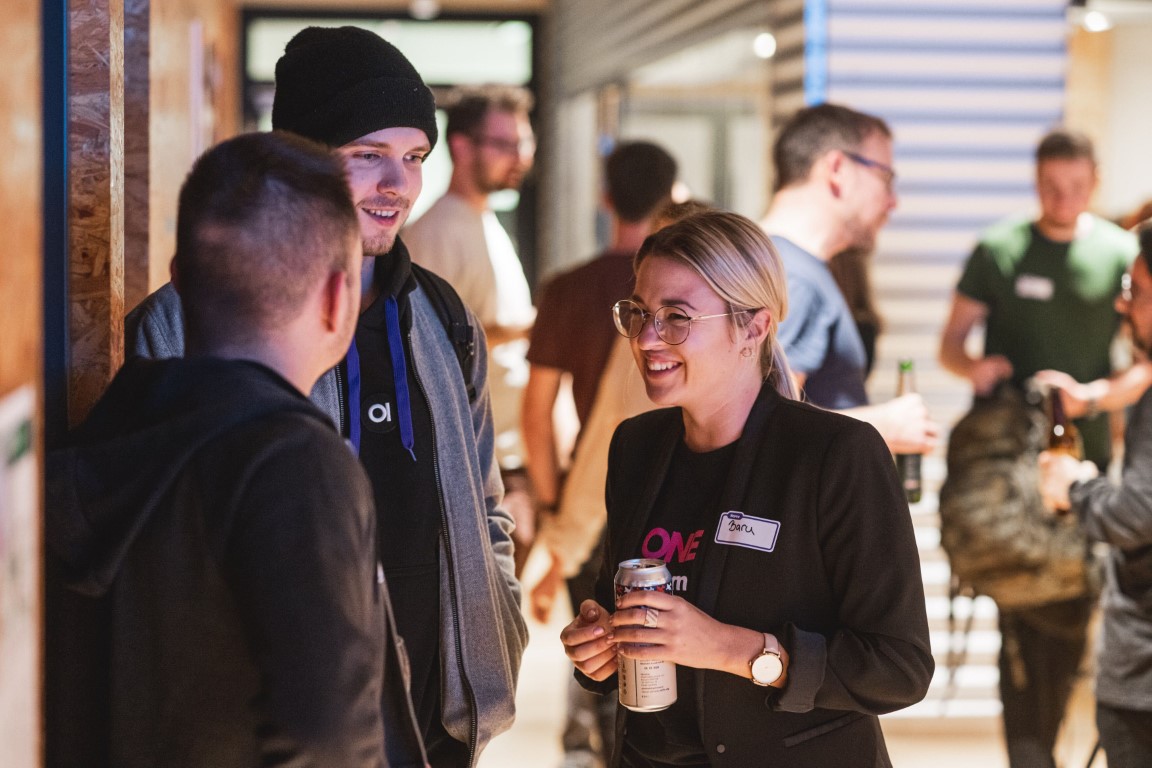
If I did a huge event for 10,000 people, for me it’s the same, because you start with the graphics of invitations, communication, production, the audio and visuals, onboarding the moderators...Then you start thinking about food and beverages, or anything else.
If you’re looking for sponsors, then you're going to start working on who is going to pay for the event. So we also have to start working on the sponsorship materials. Then there’s the content itself for the event. And then you need some volunteers or employees to help with small things, or creating the swag. The merch, of course, must be great. Then the event happens! Afterwards, you do a debrief – what was great, what wasn't.
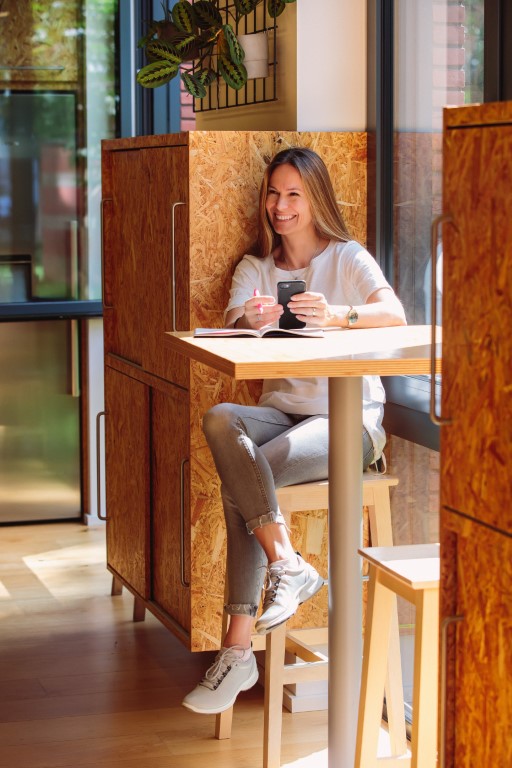
Hedvi: The first thing is to think about the purpose of the event. I always ask myself these questions – why are we doing this event, what emotion should the event create? Here, discussion with our management is very important, meaning you need to be aligned with the purpose, what we should support, what we need to communicate…At the end all the events are about emotions, and what we try to create is the feeling that these are the people whom I want to work with. This is the company where I want to be.
Another very, very important aspect of this is fun! We really want to be original, excite people, create lasting memories and avoid doing something similar to what others do. We always try to be very unique. So we try to find exceptional venues because we always want that WOW effect – we once set up an indoor surf arena with artificial waves, we held our SpaceUp celebration at the Prague Planetarium...we want people to enter the space and fall in love with it at first sight. So the purpose and the uniqueness are important for me. Of course, there are always some small, not so fun things to think about like the budgeting, the agenda, timing, communication, preparing the visuals…but these two are the most important.
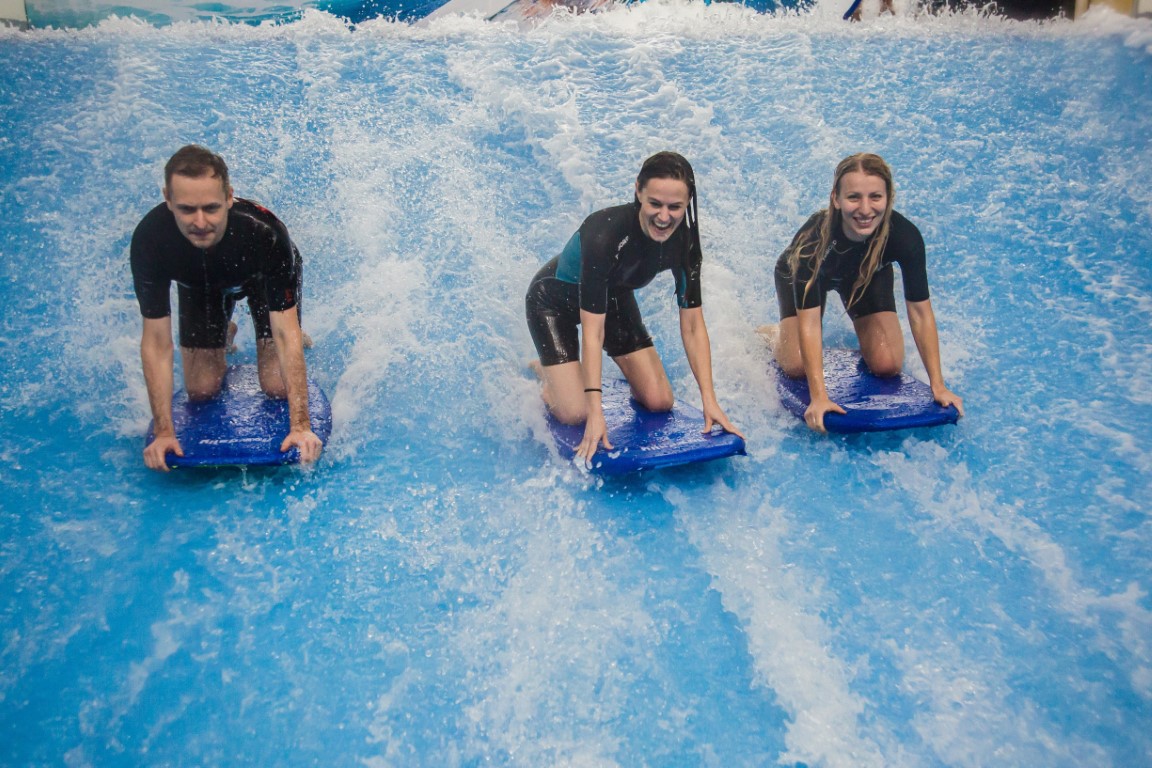
How do you prepare for unknown factors?
Baru: I think it must be in your personality, that you are very flexible. And for example, I'm not that organized. So for me if Plan A it's not happening, I don't care. I always find a Plan B and C.
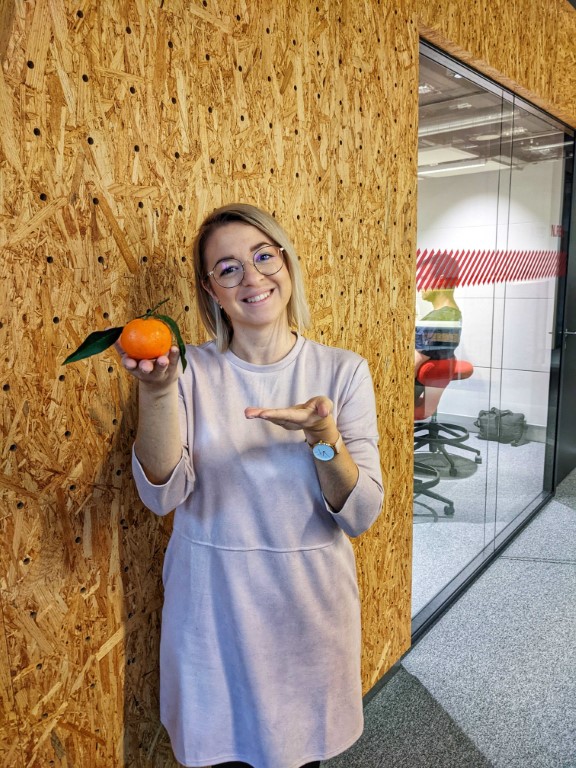
Hedvi: I think the only way to prepare for unexpected things is to think about all these things beforehand and plan ahead. This is my way, because I'm the type of person who hates stress. That's why I try to think about everything, what can happen, how people can behave, what questions they could have, anything that could go wrong, I try to mitigate these potential risks. And then I think it's visible in the result. The biggest satisfaction for me is when people tell me they had a great time!
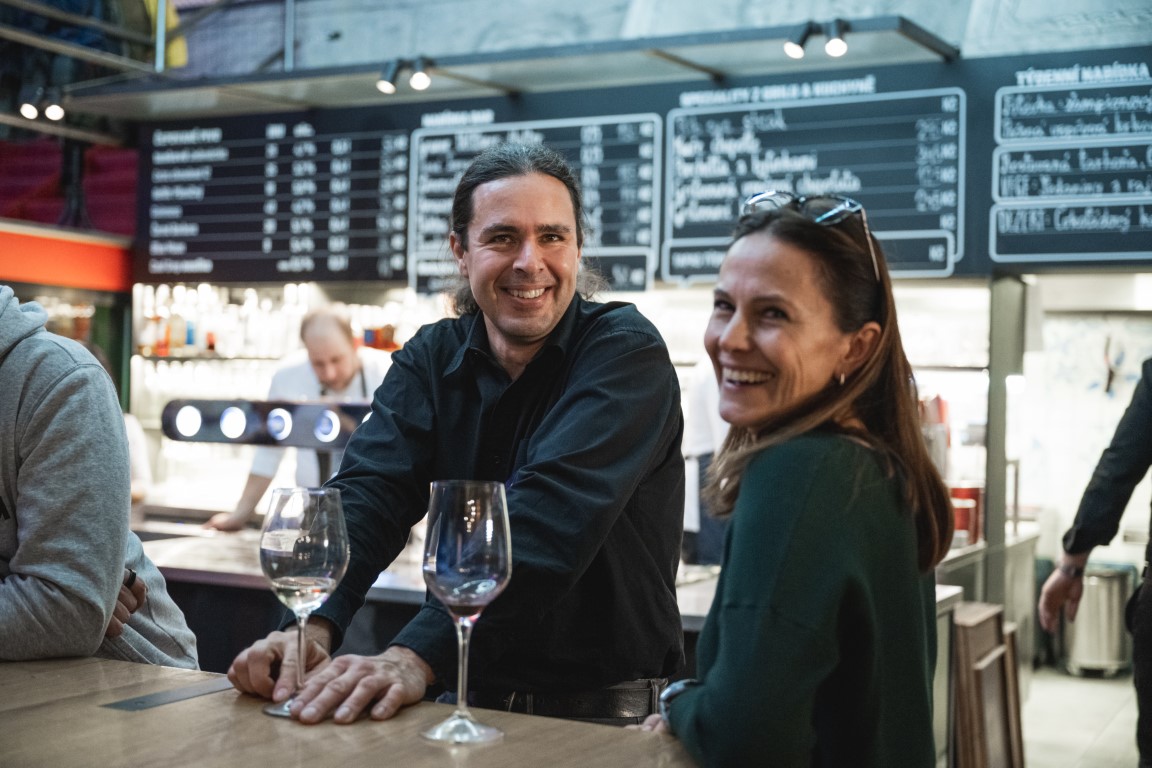
What kind of event would you love to organize?
Baru: I'd love to organize a conference for both external attendees and our internal employees. This way, we can get the best out of our talented Ataccamers who might not know their strengths, and we can connect with people outside and provide an opportunity for attendees to learn and develop their skills on a deeper level. We can, at the same time, nurture talent and provide value to everyone involved. After the event, we can have some fun parts, but the main focus should be on knowledge-sharing and connecting talented individuals.
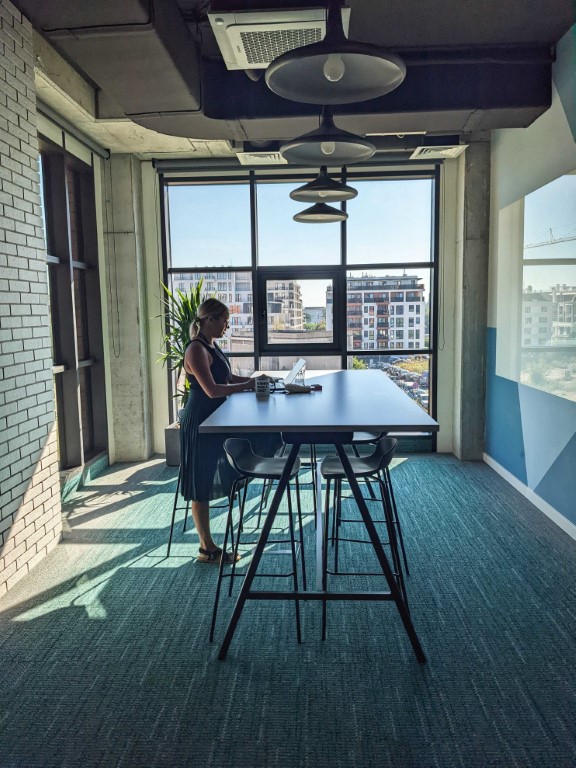
Hedvi: Difficult question. Maybe more important for me than just the event, is what’s something new we could try, where can we push the limits, what are the challenges ahead of us? The events market has changed significantly during the last few years and we have to be very flexible and adapt to it. The biggest challenge for me is the hybrid environment and very diverse team in Ataccama, because you must consider many factors and opinions which very often go against each other. Therefore, I find event production much more time-consuming in these times. The discussion beforehand and creating the concept is simply not an easy process. What I would like to focus on in the near future are sustainable and CRS events. But we are just at the beginning.
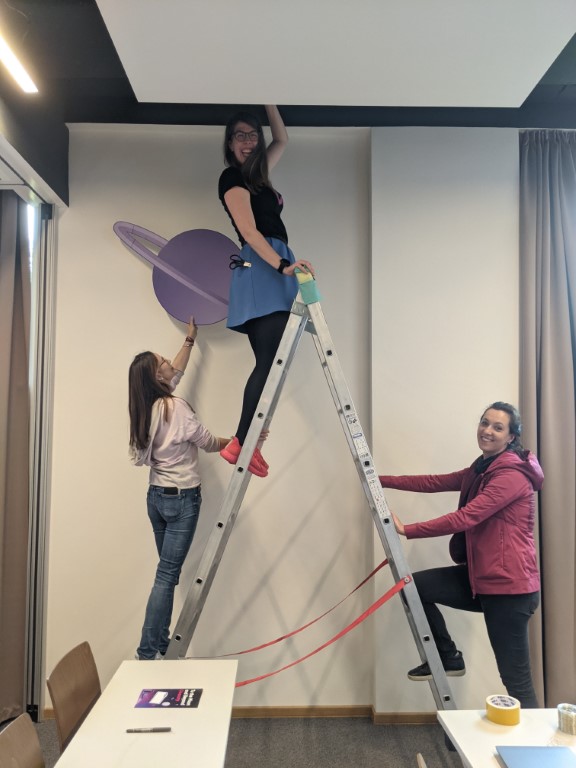
What type of personality or skills do you think are important for someone to succeed in event management?
Baru: Definitely, someone who enjoys being around people. Otherwise, after a few events, it can be draining. You spend all day preparing beforehand, which takes a lot of energy. Then, on the day of the event, you have to give all the energy you have left to people around you, and be with them all day long. After you debrief and start with the paperwork, all you want is to just go to sleep. So, someone who loves people, and who is also okay with being extroverted. That's why I do what I do! I'm like Nokia – connecting people :)
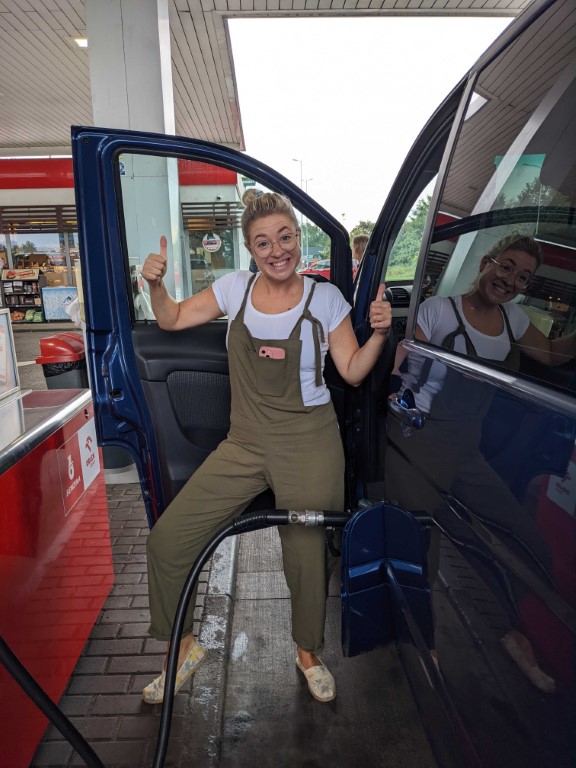
Hedvi: First of all, the ability to put yourself into the shoes of the participants. Understand them. And second, creativity is super important – not to produce ordinary, boring events. And also responsibility, which sometimes goes against creativity :) But both personality traits are important. Because you need to be prepared for everything. Another skill is multitasking, you have to be able to think about hundreds of things at once. I once heard that being an event manager is more stressful than being an airplane pilot - my feelings exactly!
